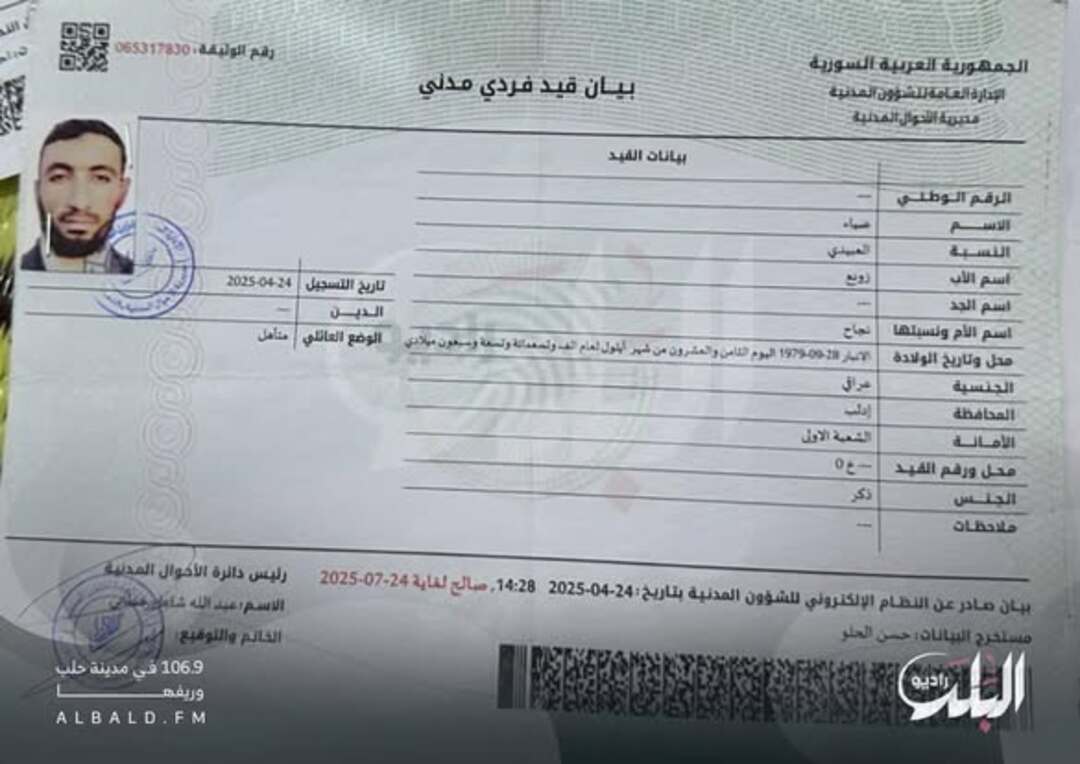-
An official document reveals details about Diaa Zoubaa Al-Hardani before his assassination in the city of Al-Bab

In a significant development reflecting the complexity of the security and political situation in areas controlled by Syrian opposition factions, a recent report issued by the Syrian Civil Registry provided vital information about the identity of the victim, Diaa Zoubaa Al-Hardani, who was assassinated by the US-led international coalition forces early today in Al-Bab.
The document, issued by the Civil Registry Department in Idlib, confirms that Diaa Zoubaa Al-Hardani, who was believed to be a person of influence or involved with complex files, holds Iraqi nationality. He was born on September 28, 1979. It also indicates that his mother’s name is Nagah, his father’s name is Zoubaa, and he is registered in the First Civil Registry Office in Idlib Province. He is listed as married. The document showed that Al-Hardani possessed an official individual record statement issued on April 24, 2025, just three months before the assassination operation, indicating that his life was officially documented and registered within official records legally. This statement was issued by employee Hassan Al-Hillo and bears the stamp and signature of the Head of the Civil Status Department in Idlib, Abdullah Shaban, to confirm the authenticity and legitimacy of the information.
Interestingly, the document was valid until July 24, 2025, only one day before the assassination, raising questions about the extent to which official records might influence security or political operations in the region. Whether the document served a formal or symbolic purpose, it provides a legal framework for understanding the victim’s identity more precisely.
The disclosure of this document, along with the events that preceded it, reflects a complex background that adds a new dimension to the recent assassination. In the absence of official information confirming the motives and reasons for the targeting, this document remains a significant evidence that Diaa Zoubaa Al-Hardani was living a documented life, with official papers, raising questions about the implications of this on the security landscape in the area—especially amid ongoing tensions among local, regional, and international parties.
In the current situation, many questions remain unanswered about who is behind the assassinations, their objectives, and whether personal, political, or security motives are driving the targeting of Al-Hardani. While the document reveals important personal details, the mystery surrounding the circumstances of the incident persists amid intense conflict and a lack of transparency, leaving the scene open to further analyses and speculations.
Tags
You May Also Like
Popular Posts
Caricature
opinion
Report
ads
Newsletter
Subscribe to our mailing list to get the new updates!






















